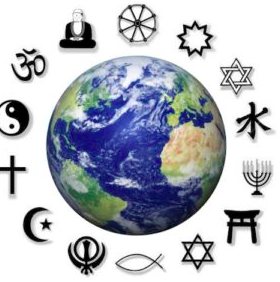The relationship between Christianity and other religions is complex and multifaceted, varying significantly depending on historical, geographical, cultural, and theological contexts. Here are some key points to consider:
- Historical Context: Christianity emerged within the Jewish context in the 1st century AD. Initially, it was seen as a sect within Judaism. As it spread beyond its origins in the Middle East, Christianity encountered various religions such as Greco-Roman paganism, Zoroastrianism, Hinduism, Buddhism, and Islam, among others, leading to diverse interactions.
- Theological Differences: One of the defining features of Christianity is its belief in the divinity of Jesus Christ as the Son of God and the savior of humanity. This belief sets it apart from religions that do not recognize Jesus in this manner. Consequently, the theological doctrines, scriptures, rituals, and practices of Christianity can differ significantly from those of other faith traditions.
- Interfaith Dialogue: Over time, there have been efforts to engage in interfaith dialogue between Christianity and other religions. These dialogues aim to foster understanding, respect, and cooperation among different religious communities while recognizing and respecting theological differences. Organizations such as the World Council of Churches and the Vatican have been involved in such efforts.
- Ecumenism and Interreligious Relations: Within Christianity itself, there are various denominations and traditions (e.g., Catholic, Protestant, Orthodox). Ecumenical movements seek to promote unity among Christian denominations. Similarly, interreligious relations aim to build bridges between Christianity and other faiths, emphasizing common values, ethics, and social concerns.
- Cultural and Social Interactions: Beyond theological and doctrinal considerations, Christianity and other religions often interact within shared cultural, social, and political contexts. This interaction can lead to both cooperation (e.g., humanitarian efforts, social justice initiatives) and tension (e.g., religious conflicts, cultural clashes).
- Pluralism and Religious Diversity: In today’s globalized world, many societies are characterized by religious pluralism and diversity. This reality necessitates mutual respect, understanding, and dialogue among different religious communities, including Christianity and other faith traditions. Recognizing the shared humanity and inherent dignity of all individuals is essential in fostering peaceful coexistence and collaboration.
In summary, the relationship between Christianity and other religions is characterized by a mix of historical interactions, theological differences, ecumenical efforts, interfaith dialogue, cultural exchanges, and social engagements. While distinct theological beliefs and practices differentiate Christianity from other faith traditions, there are also shared values, ethical principles, and common concerns that can serve as foundations for mutual respect, understanding, and cooperation.
